- UID
- 20
- Online time
- Hours
- Posts
- Reg time
- 24-8-2017
- Last login
- 1-1-1970
|
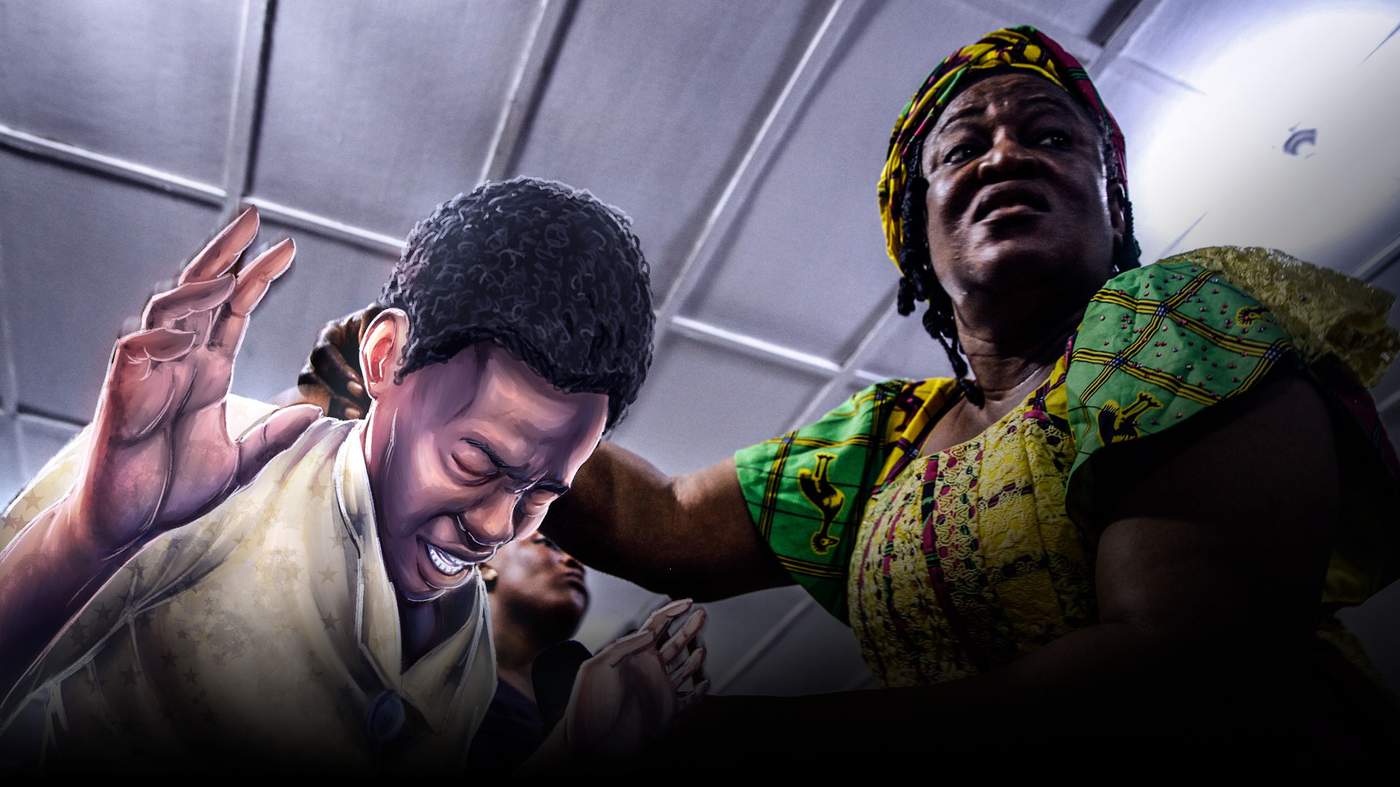
Words and photography: Marc Ellison
Illustrations: Ozo Ezeogu
Warning: Disturbing content
▼ Sitting on a chipped wooden bench, the three-year-old swings her legs excitedly. Her sandals barely touch the floor as she watches a Teenage Mutant Ninja Turtles cartoon.
It is hard to believe Comfort is a witch.
Yet this is why she and her two older siblings are now living in an emergency shelter in the city of Calabar, in the southeast corner of Nigeria.
It's little more than a basement with a television and half a dozen threadbare mattresses.
The door is locked most of the time for the children’s own safety.
The shelter was intended to be a temporary solution - a stop-gap until the children could be placed with extended family.
But no-one wants to risk bringing the children - all of whom have been branded witches - into their homes.
Once her cartoon has finished, Comfort totters outside and lifts her shirt to reveal a sea of whitened welts across her back.
These ragged scars trace the outlines of the red-hot machete that a neighbour used to force her to “confess”.
Names of the children in this story have been changed.Illustrations are superimposed on top of photos to protect identities.
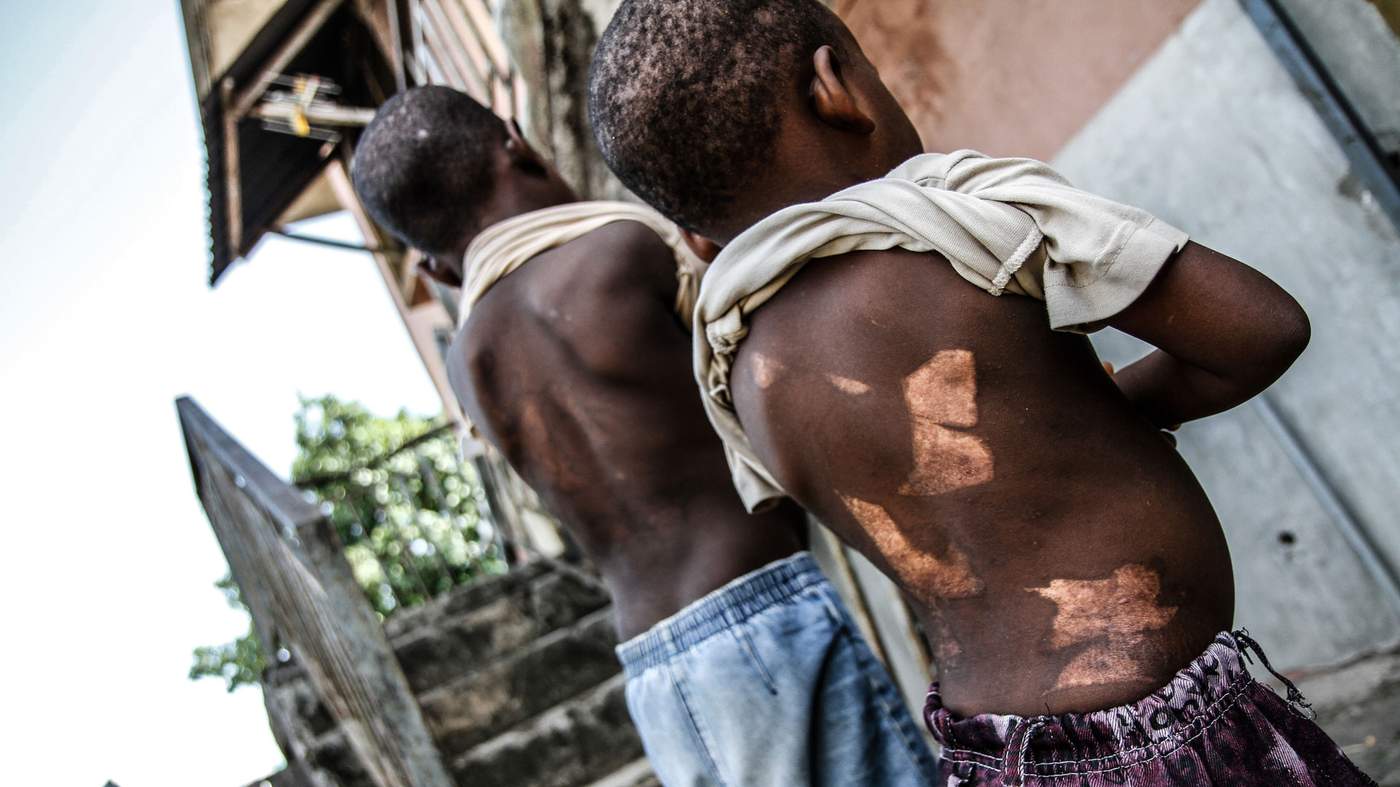
Led into darkness
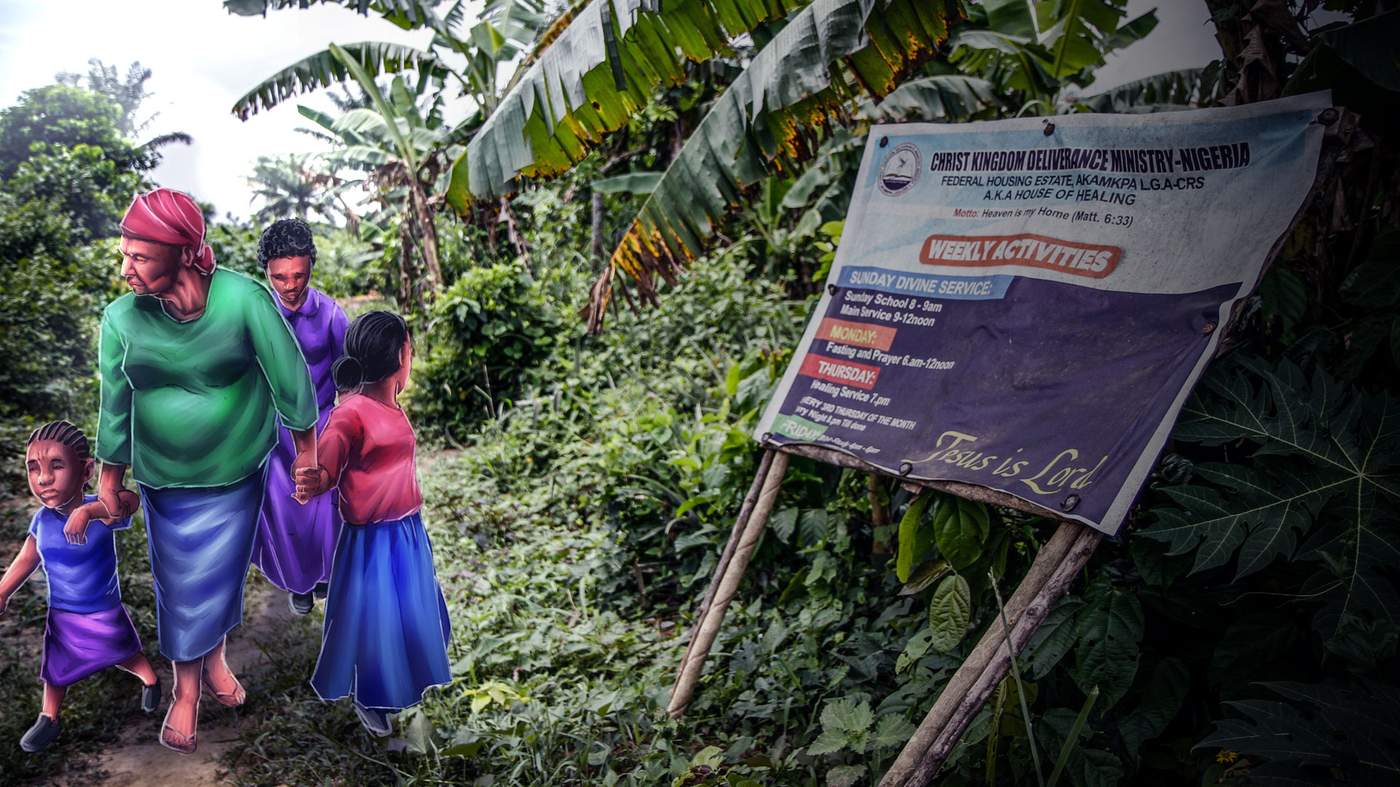
In early February, Comfort and her sister Hope, 15, and five-year-old brother Godbless had been living with their grandmother Christiana in nearby Akampka.
Their parents had died suddenly in unexplained circumstances, and while this had made Christiana wary of the children, she had agreed to take them in.
Already diagnosed as HIV positive and not taking her anti-retroviral drugs, Christiana's health was failing and she was becoming increasingly thin and frail.
Blaming the children for her ailing health, Christiana took them to her local church for guidance.
There, a so-called prophet confirmed her worst fears - the children were branded witches.
For Christiana, this explained everything - the death of her daughter and son-in-law, her sickness, and the children’s rowdy behaviour.
Shortly afterwards, a neighbour called Rankin overheard Christiana accusing the children of cutting the rope of the washing line in the family compound - blaming their witchcraft for their actions.
After talking to Christiana and finding out more about the accusations, Rankin returned the next day with a friend.
“He started beating us and told us to untie our grandmother from the witchcraft world,” says Hope.
The children tried to escape through the surrounding palm trees but were quickly rounded up by the two men and taken to the neighbour’s house.
Their hands and feet were bound, and Rankin heated up a machete blade in the coals of a nearby fire.
“They then asked us if we were witches,” says Hope from the safehouse in Calabar. “We said, ‘No’.”
“So he started beating us in turn with the hot machete, from morning until afternoon.”
Blood bloomed black on the ground as again and again they were asked to confess.
“We eventually said, ‘Yes’,” says Hope. “Then they asked us if we are the ones that killed our father and mother - we said, ‘Yes’.
“They asked us if all these troubles in our family - we are the ones who caused them - we said, ‘Yes’.”

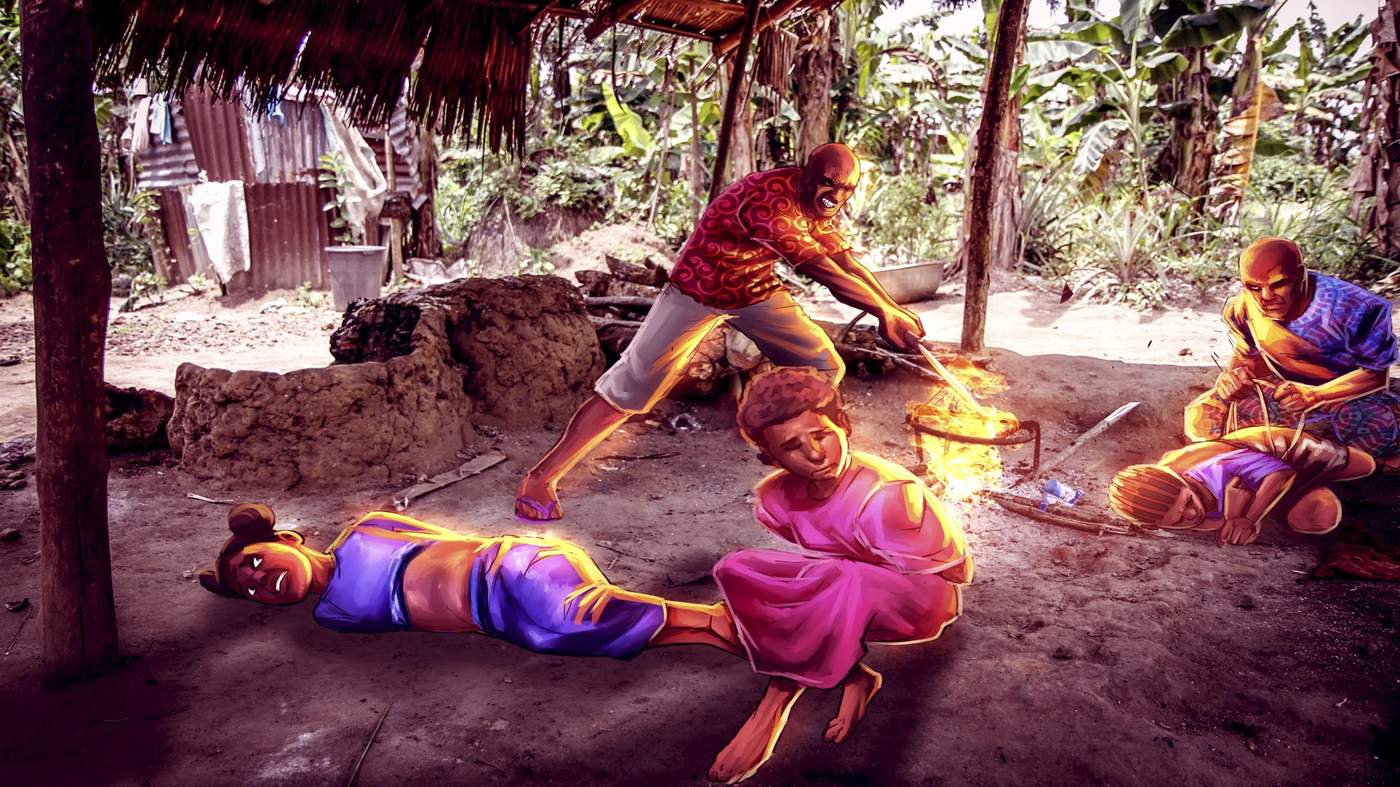
When I visit the mud-walled church where the children say they were branded and beaten, the prophet they say labelled them as witches is not there.
Instead I meet pastor Israel Ubi. He claims no-one at the church makes such accusations, or conducts deliverance ceremonies to exorcise alleged witches.
“There is no witchcraft here,” he says.
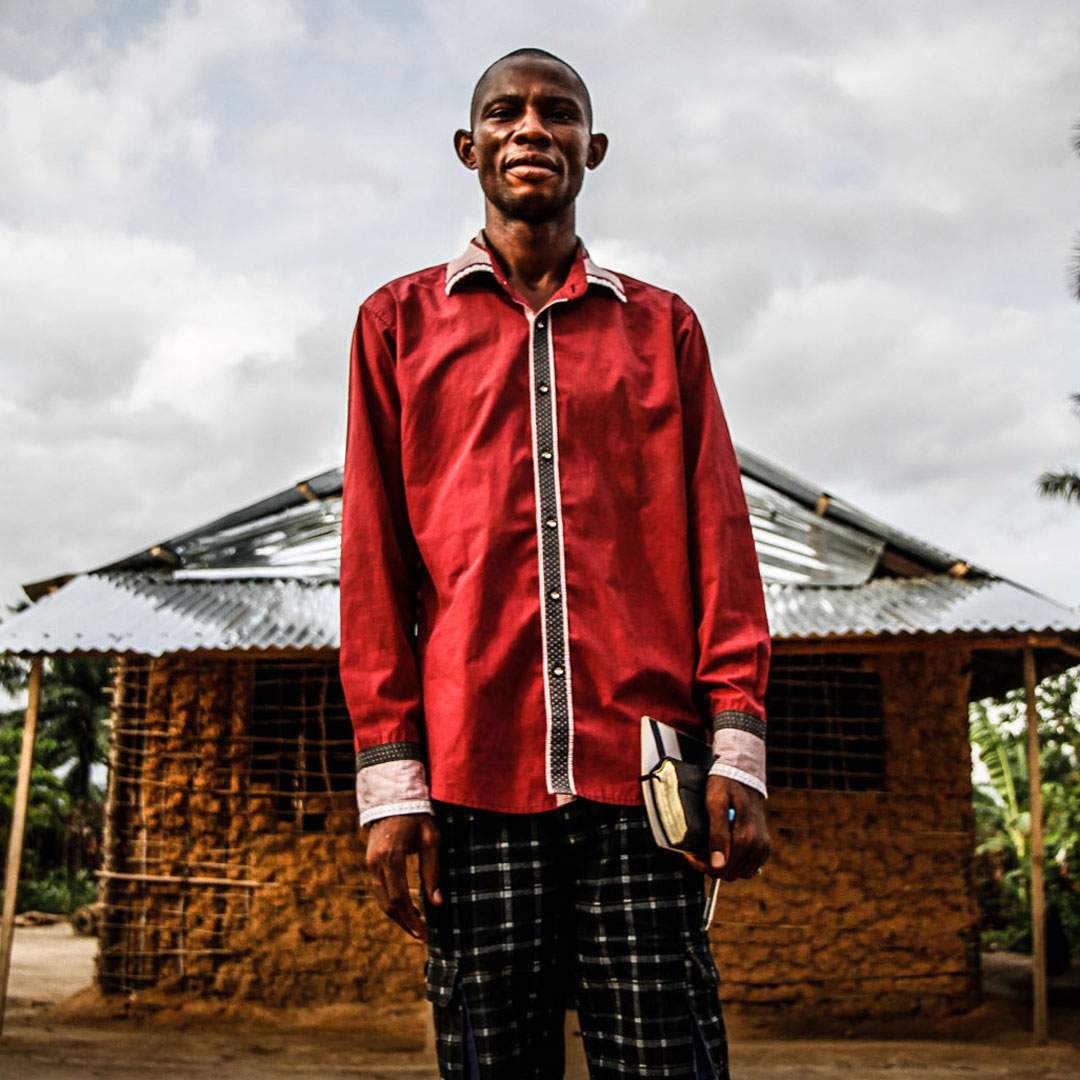
When pushed on the subject, he acknowledged that the church did deal with “marine spirits and demons” that many in the Niger Delta believe live in and around oceans, seas and rivers.
It was the children’s uncle Sunday who reported the machete incident to the police.
The taxi driver, who says he doesn’t believe in witchcraft, angrily dismisses the “prophet” who branded the children.
“As a result of her health, my mother believed in [his] words. Prophets - they are criminals, they are people who are destroying people’s lives.”
The stigmatisation of children as witches is a recent phenomenon in the Niger Delta region, which suddenly exploded in the 1990s. Before that, elderly women were the main targets of witchcraft accusations.
By 2008, it was estimated that 15,000 children had been branded in the southeastern states of Akwa Ibom and Cross Rivers.

According to research from that period, cases that had been documented included children and babies who had had nails driven into their heads, been forced to drink cement, set on fire, scarred by acid, poisoned, and even buried alive.

A separate 2010 Unicef report notes it is typically vulnerable children with physical disabilities, or illnesses such as epilepsy, who are targeted.
Others are branded for appearing withdrawn, lazy, or unruly.
Nigeria’s criminal code prohibits accusing, or even threatening to accuse, someone of being a witch. And the Child Rights Act of 2003 makes it an offence to subject any child to physical or emotional torture, or submit them to any inhuman or degrading treatment.
However, while this piece of legislation was enacted at the national level, the country’s 36 states are still required to formally ratify it. This not only gives individual states exclusive responsibility - it allows them to make laws relevant to their specific situations.
Only about three-quarters of Nigeria’s states have domesticated the Child Rights Act, and to date only the state of Akwa Ibom has included specific provisions concerning the abuse of alleged child witches. Its 2008 law made witch branding punishable by a custodial sentence of up to 10 years.
And despite lobbying attempts, Cross River State has yet to amend its own 2009 version of the legislation to specifically outlaw the offence.
But regardless of the fragmented attempt to criminalise it, witch-branding continues under the noses of the state governments and police of Akwa Ibom and Cross River states.
Oliver Orok, minister of sustainable development and social welfare for the Cross River State government, told the BBC the ministry was “working assiduously to eliminate these practices”.
“The state government in partnership with Unicef and other development partners organised a summit to deliberate on amending the law to include, among other things, the issue of branding children as witches and its consequences,” says Mr Orok.
The minister says "criminal law has abolished such practices". However, 10 years on, no-one has been successfully prosecuted in the courts.
There has been an increase in advocacy across the state to deal with the issue, Mr Orok says, and that money had been made available to build a home for children at risk.
He adds that if the government was made aware of cases, it “would move against such churches and their prophets”.
Lawyer James Ibor argues that the police are poorly funded, and not equipped to carry out these types of investigations.
“Often we have to push for investigations,” he says.
Ibor runs a local organisation in Calabar called Basic Rights Counsel Initiative (BCRI), which specialises in legal cases concerning child rights abuse - it also runs the emergency shelter where Comfort and her siblings are staying.
He tells me about two children who were poisoned by their father, who believed they were witches.
He pleaded guilty, but there were no resources to send blood samples to Lagos to confirm the children’s cause of death.
One year on, their bodies remain in the morgue, and the father has yet to be tried.
Ibor claims that cases have stalled for years.
He says his job is made harder by the reluctance of the police and government to investigate controversial issues combined with a lack of willingness from families and communities to provide evidence.
About a quarter of his ongoing cases relate to witchcraft, he says.
But this phenomenon is not just restricted to Nigeria's more remote regions.
Just six months ago, the Nigerian media reported on 40 children who were rescued from a witchdoctor’s “torture camp” in the capital of Abuja.
And this May in Lagos, a boy was badly beaten by his mother with a koboko, or horsewhip.
“So we have the laws,” says Ibor. “The problem is not the laws - the problem is implementing these laws and until then our children are not safe.”
And he blames some of the “prophets” and “pastors” for sowing fear across the Niger Delta region where poverty and a belief in witchcraft are widespread (▪ ▪ ▪)
► Please, read the full note here: Source |
|